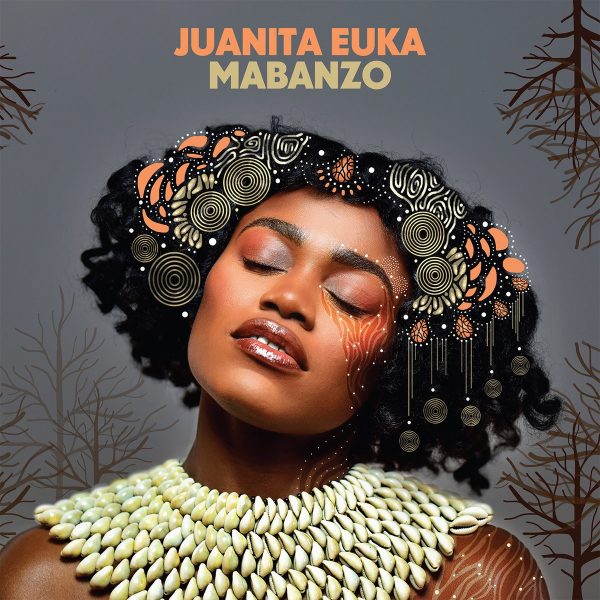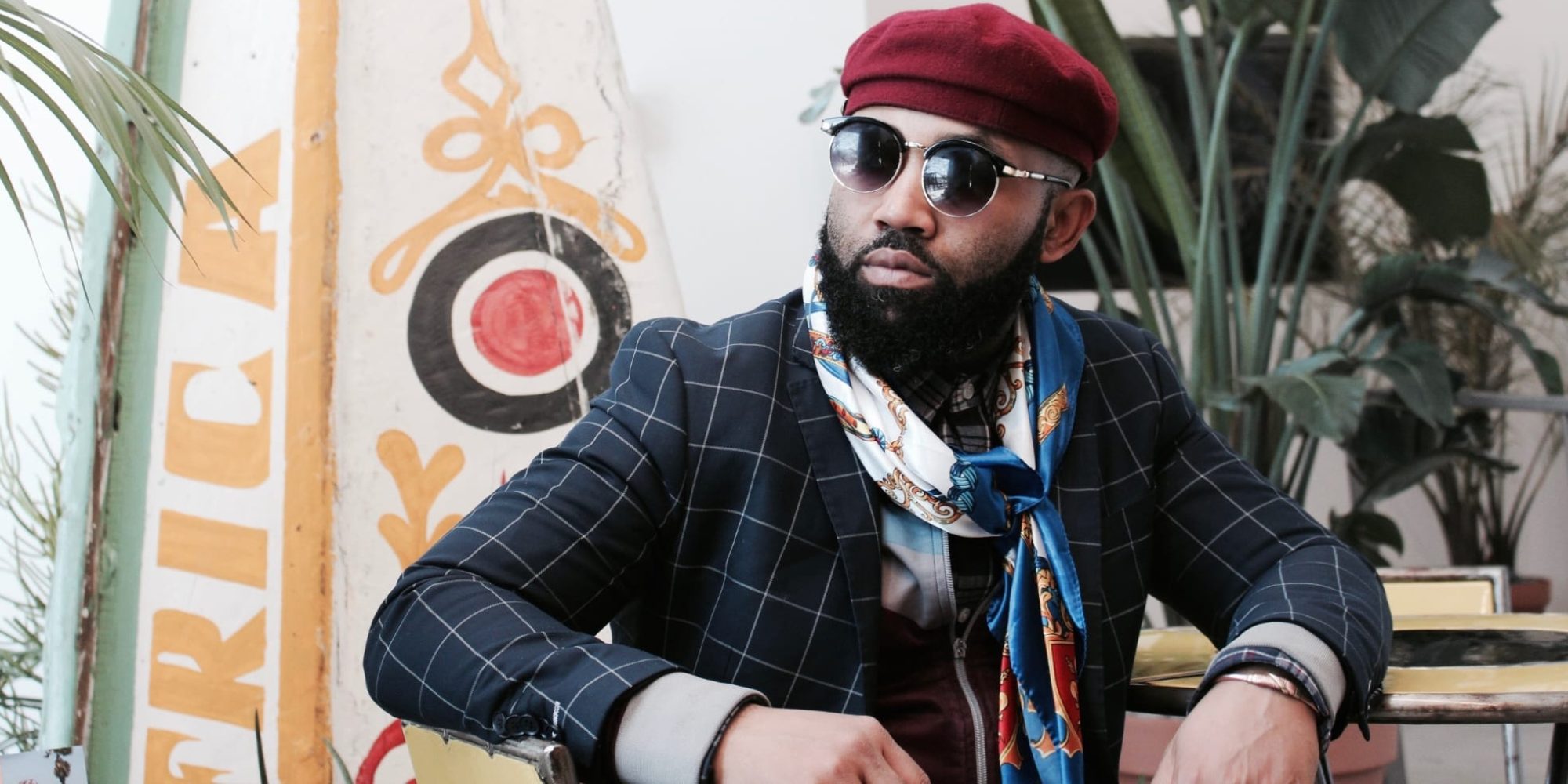Nkumu Katalay is a Kinshasa-born multi-instrumentalist and bandleader based in New York City. He leads one of the only working Congolese-oriented bands in the eastern U.S., and recently opened up for Kofi Olomide’s long-awaited New York performance at Webster Hall. On March 1, 2023, the band will headline at the Mercury Lounge in New York City. Afropop’s Banning Eyre spoke with Nkumu to get a preview. Here’s their conversation.
Banning Eyre: Good to see you again. This is the first time we have done a formal interview, so why don't you start by telling us your story a bit?
Nkumu Katalay: My name is Nkumu Katalay, born and raised in Kinshasa and half raised here in New York as well. I come from a Guinean father who traveled to the Congo in 1976, and a Congolese mother with whom I spent most of my life there. I grew up in my mom’s side of the family, and this explains a bit of my Congolese cultural side. My Guinean side, I’m still learning. My mother's family on both her mother’s and father’s side, had traditional music in the family. Traditional healing music. These are people who inherit the tradition of healing known as zebola.
What was the music like in those healing ceremonies?
The tradition is medicine, which implies being a nganga or somebody who knows what comes together to perform healing ceremonies. Among these ceremonial elements, that's where the traditional music comes in. It involves a lot of drumming. I grew up in a home where I saw, from when I was in kindergarten, my great great grandmother who was part of the zebola tradition, doing ceremonial events. The biggest names in town in traditional music would come to drum in our home. So me as a child, it seemed normal.
Because my mother was a zebola dancer at a young age, I witnessed the rite of passage for my great great aunt, my great great grandmother's younger sister. She is the one who inherited the traditional healing. My mom taught me how the drumming was. Her big sister, rest her soul, she is the one who next inherited the traditional healing. My mom was the fifth child. So on that side of the family. I always had access to the drum, and to what they were doing in ceremonies. I knew about tuning drums using fire, so I had access to things like that.
But in Kinshasa overall, I was living in Matonge. That's a section of Kinshasa where Viva la Musica and Papa Wemba was groomed. It's a very lively area. I remember coming out of our home in the morning and listening to the latest songs of out of loudspeakers, just catching up on what was new. Just recently I saw Victoria Eleison, Emeneya’s group. they were marking the ninth anniversary of his passing, and I heard the song they were singing and it took me right back to the mid ’80s when me and my young uncles would go out learning the lyrics to songs. So I grew up in Kinshasa, with that contrast, coming from this traditional music family, and Matonge with bars and music everywhere. Every avenue and every street had a band, so I was groomed under that.
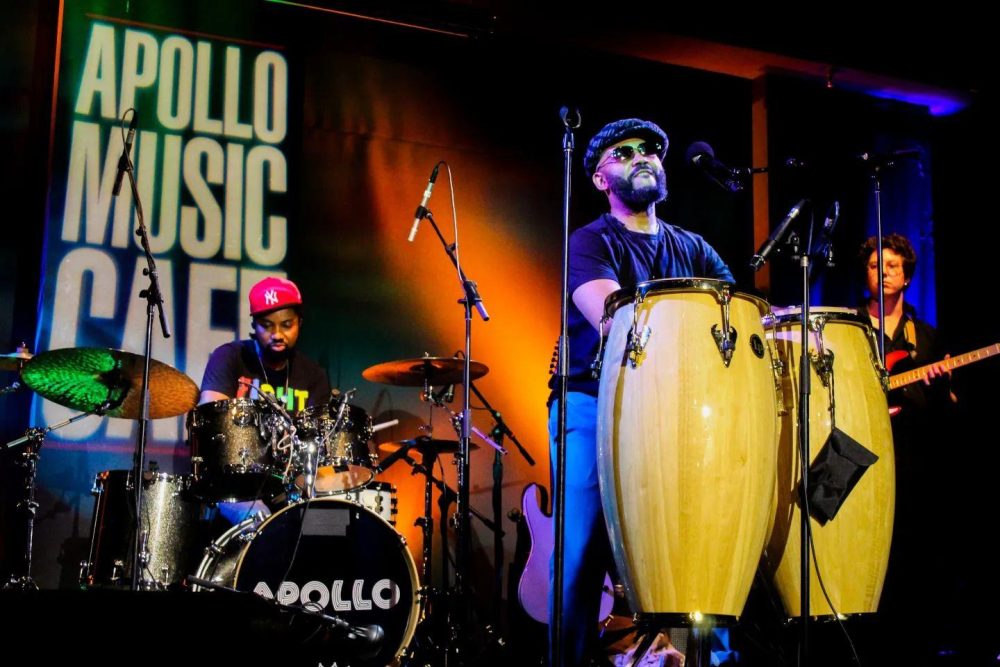
I visited Matonge in 1987, and I know what you're talking about. It was really something back in the ’80s. So how did you end up in New York?
My father invited me here to give me a chance to have more opportunities.. So I left Congo in 1996 to come to New York as a youngster and to go to school.
Let me ask you about your name. I've always known you as Isaac. But you use the name Nkumu now.
Nkumu is the name my spirit calls me. Isaac is the name I received through my Christian faith in 2000, so it's still part of my official documentation, but my spirit calls me Nkumu, which is a word of the Bangala people for “chief” or “wise man” or “elder.” A king is a Nkumu, but it can also mean a person with wisdom.
So tell me a bit about the show you have coming up.
I'm playing at the Mercury Lounge in collaboration with dj henri. We're coproducing the event. I've never actually been to the Mercury Lounge. This will be my first time. Doors at 9 p.m., and the first set will go on at 9:30 p.m.
I chose March 1 because I had planned to leave for South Africa. Last March I went to South Africa in Polokwane to take place in the Nwali Festival as part of the U.N. Red Card campaign against sexual violence against women and children. Queen Mother Makhadzi, Queen of the Venda people, is a fierce advocate on many causes. This year, instead of me going in March to South Africa, the Queen is coming to New York to host a few Nwali Festival events throughout the States. I did a Nwali song called “Nwali Celebration,”[2] so now the Queen and I will shoot the video while she is here.
Tell me about your band.
The band is called “Nkumu Katalay and the “Life Long Project Band.” Life long is in quotations because it’s a philosophical statement of when I discovered that life is really a long project for the living. In life we have multiple activities, and the most mature activities are called projects. So as I was philosophizing in the early 2000s, ideas were coming to me, and I realized that life is a long project for the living. So that’s why I chose this band name.
How big a band is it?
After I officially went solo in 2011, whenever I was invited for a show, I could extend all the way up to an orchestra, because I grew up in Congo with Tabu Ley and Franco and these big bands that would have 12 musicians on stage, plus four dancers. But you know music is a tough business, so I had to learn to do all these things with reduced numbers. I can function as a solo artist, a duet, a trio, a quartet, quintet, and then I can extend to whatever is needed. The central part of my band is a quintet. I'm addicted to the percussion, but I play multiple instruments so if I have a percussionist, I'll be playing lead guitar. But whenever I don't have percussion, I'll be the one playing percussion. Then I have the rhythm section, the keys, the bass, the drum set, rhythm guitar...
Would you describe your music as Congolese?
I call my touch “Rumbianfunk,” the Rumba within my funk.
I like that.
Somehow being a youngster of African descent, but also of the diaspora, I've learned that the diaspora is not just we who came directly from Africa now. There's an extended history of 400, 500 years. So in watching my people’s journey, I've grown up knowing Cubans and people of the Caribbean, people of Latin America, African-Americans; it's a big collage of stories. So I started to see the connections. My vision highlights the contribution of Congolese culture in world history. I saw that Congo had historically influenced the diaspora that is here. So my music's really a collage of all those things. You have the Congolese traditional. You feel the influence of the Afro-Cubans that came in. It's kind of like your own coming back to you. So my sound has Negro spirituals, Congo, traditional, urban music, soukous, but all from a Congolese perspective.
I became particularly curious about the Cuban spirit in their music. Whenever they play, it reminds me of when my aunt used to do ceremonies. It reminds me of when all these percussionists in Kinshasa who would come to my great great aunt’s ceremonial dance. I saw how much the Cubans developed and preserved the African traditions within their music, and others in the Caribbean as well.
It comes from Africa, but they were able to keep it for some reason. I couldn't get over the fact that these are the people who left such a long time ago. But they're able to play, and culturally they're able to project that culture. So I fell in love with that, especially since I'm a percussionist. I saw also how the Cuban musical language has entered America. You see all these connections in jazz, the ability to use percussion at the highest level and to simplify a certain rhythmic language. This is my observation, I'm not a musicologist – but from observing I saw that the Cubans in particular have a level of spirituality and maturity in their execution. I saw their take as a movement in itself. Then there’s the second phase, that is what funk did when it was introduced to the world. It's almost like a relativity theory with Einstein, like a mathematical formula through the universe. Funk made the black cultural, or African diaspora regain that connection, again by simplifying the form. When you hear funk, you feel like anybody can play it. But it's actually very complex.
So I use the mixing of these two, plus me, a child of a mother who sang traditional songs to her children. This is beyond a political movement, beyond a revolution. It's an ability to express African maturity at that high level, and for me, knowing how it all relates to the Congo. I have to highlight that. So my music, while it's expressing Congo, it's also expressing me being here in the diaspora. That bundle is Rumbianfunk.
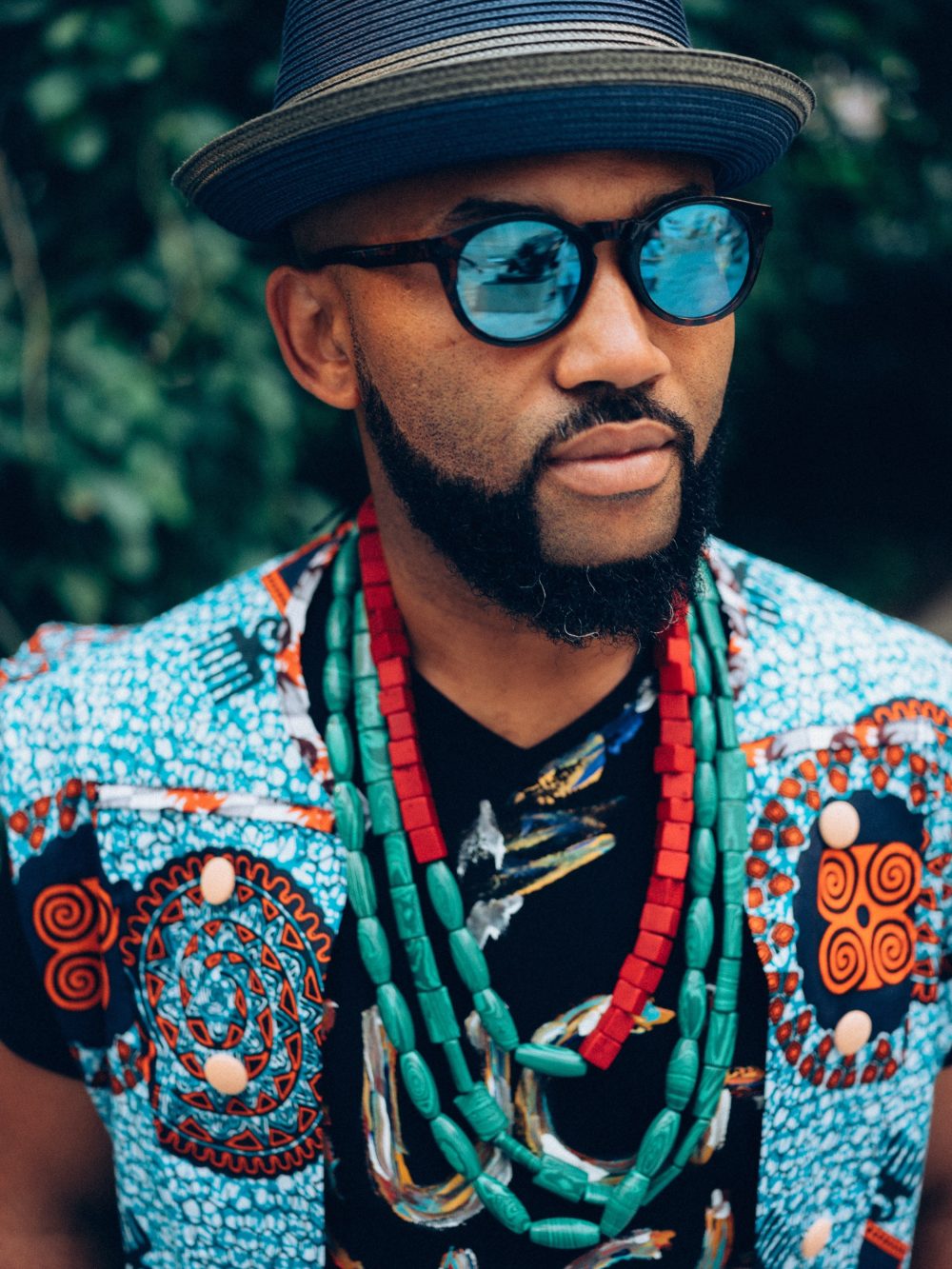
So interesting. We need to talk more about all that another time. I'm involved in a project about funk music in the ’70s and Africa and the way it played out in the Congo is very interesting. But we'll talk about that another time. Coming back to your band, I saw you guys last year opening for Koffi Olamide. It was a very strong show.
Yes, my set was early.
And Koffi came late. It was quite a night. But is that the band you'll be presenting at the Mercury Lounge?
It'll be a little smaller than that. But that's the core. When I started, I always wanted to have horns, but that requires a lot more rehearsing and practicing and expense. But for future concerts I do want to bring back horns.
Before we go, have you recorded an album?
I'm still working on my first album. I have lots of singles. But the first album is yet to come. Hopefully the album will explain my style.
We look forward to it. Have a great gig.
Related Audio Programs
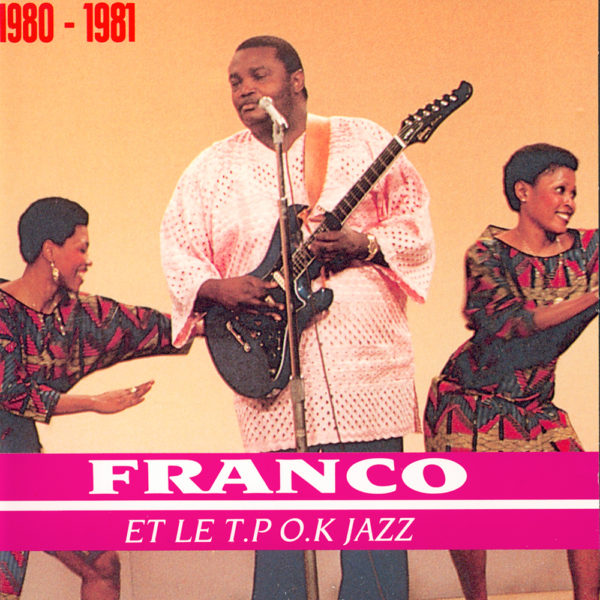
Related Articles
